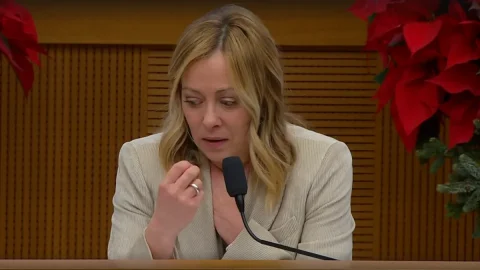I social media they can bridge the gap between men and women in politics. This is stated by the report "Social Media: Advancing Women in Politics“, conducted by the Women in Parliaments Global Forum (WIP) Foundation in collaboration with Harvard University, the support of Facebook, which involved 900 parliamentarians from 107 countries (of these 25 in Europe).
Social media perform a social equalizer function everywhere, according to the study presented this morning at Palazzo Giustiniani by the Vice President of the Senate Linda Lanzillotta. A function that can be performed because the entry cost for using these new tools, from Facebook to Twitter, is very low and the distances between men and women are effectively cancelled.
An even more visible value especially in politics where social networks break down "barriers" allowing the political competition to give everyone the same visibility; it is no coincidence that 85% of female parliamentarians in the world use social networks on a regular basis, even if the gravest sin is to use them above all during the electoral campaign and less during the legislative mandate.
The managing director of WIP, Rick Zedník, also discussed the results together with Anna Ascani, a member of the Democratic Party, Anna Maria Bernini, senator of Forza Italia, and Sara Ranzini, director of Facebook Italy communication.
“This study confirms that social media is a great resource with an incredible political impact – he explained Rick Zednik – also because they have a very low cost of entry, especially if we compare it with resources from funding campaigns, professional networks or campaigns based on traditional media. Women who traditionally have limited access to this type of resource thanks to social media regain equal political opportunity compared to men".
“Social media, as it once happened with television – added Linda Lanzillotta -, have changed political communication and more. The study demonstrates that these tools, in addition to retaining voters, represent an extra chance for women who want to enter politics because, if used well, they can give them the same visibility as men, even if the mechanisms for selecting the ruling class, at least in traditional parties, hardly pass through the web and follow gender equality criteria”.
The study conducted by WIP has confirmed Facebook as the most popular social network in the world with its 1,65 billion users (2016 data). Of these, 28 million are active in Italy alone, an impressive figure if we consider that the users who surf the internet in our country are estimated at around 29 million.
Furthermore, only 32% of respondents to the questionnaire think that communicating with journalists is important before the vote, a percentage which then increases to 43% after the vote itself. This data is very explanatory of how Social Media has contributed to disintermediate communication with voters from traditional print media.
In this particular case, more than 60% of those who responded to the survey think that social media, compared to traditional means, are preferable for: creating a positive image, involving the public, analyzing voters' thoughts and criticizing political opponents.





